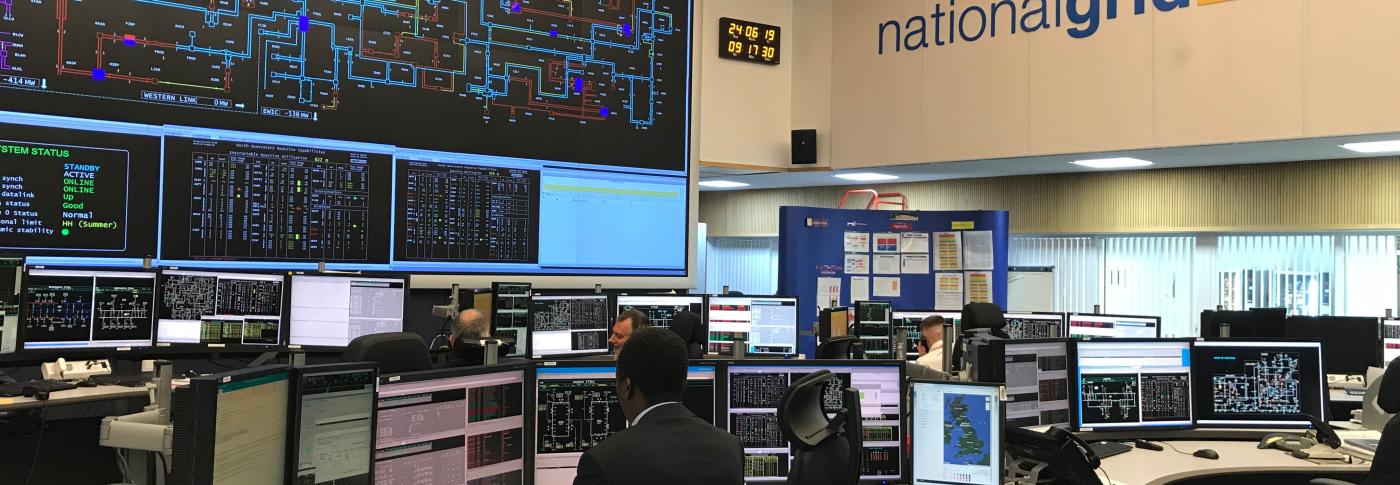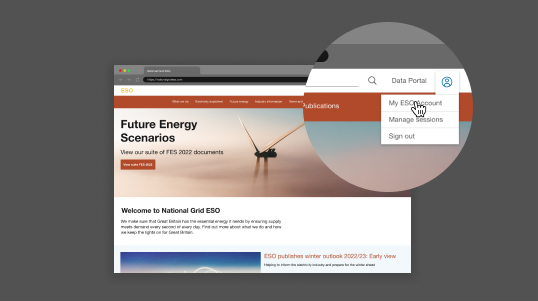
Creating new jobs to boost our zero carbon ambition
16 Mar 2021 - 4 minute read
We're creating 200 jobs this year to help us lead the transition towards a zero-carbon electricity grid
The new colleagues are being recruited throughout 2021 and, after COVID restrictions have been eased, will be based at either our Head Office in Warwick or our electricity control centre in Berkshire.
As system operator we're responsible for balancing electricity second by second for homes and business in Great Britain, and are looking for a range of skills and specialisms across a variety of different areas.
The new engineers, analysts and digital and commercial roles will help us to balance electricity demand with supply and make sure the network runs efficiently and effectively – as well as help to shape the future of the energy market, providing analysis and insight to accommodate new technologies and ways of working.
The ESO is a legally separate part of the National Grid Group, helping to build a greener, net zero future for Great Britain. Our colleagues are enabling the transition away from fossil fuels to cleaner power and have overseen recent major milestones, including zero carbon electricity overtaking fossil fuels for the first time in 2019 and a record period of electricity generation without burning coal in Summer 2020.
For more information and to apply for the roles visit our careers website
We're committed to supporting both flexible working arrangements and diversity and inclusion, aiming to recruit colleagues that reflect the diversity of the communities which it serves.
Examples of the roles available include:
• Engineering e.g. power systems engineers
• Commercial e.g. contracts and account managers, market development officers
• Data analytics e.g. data analysts and modellers, data management specialists
• Transformation and digital e.g. product owners and managers, and communications roles
• Regulation and industry codes specialists
Fintan Slye, Director of National Grid Electricity System Operator, said:
“The time is now to start tackling climate change and we’re excited to be recruiting these roles to help Great Britain transition to a greener grid.
I’m proud of all the work ESO colleagues are doing to deliver cleaner electricity, but there’s still a long way to go and these roles will help us move faster on the journey to net zero.
Transforming our electricity system to operate with 100% clean energy takes time – and the clock is ticking. We need people who are brimming with enthusiasm and bursting with ideas to help us. If you are passionate about climate change and want to make a real and immediate impact, then please do apply.”
Power System Engineer Nnaemeka Anyiam shares more on his experience at the ESO:
"I work as a Power System Engineer at National Grid ESO, the electricity system operator for Great Britain. I have one mantra that works for me – everything is ‘figure-out-able’. When I arrived from Nigeria and started my Masters in Applied Instrumentation and Control Engineering at Glasgow Caledonian University, I was really thrown in at the deep end. I was petrified for the first month, until I realised everything is figure-out-able if you have time, interest and can use the knowledge you already have.
I’d worked as a trainee engineer in Nigeria, but studying in the UK helped me consolidate my knowledge and pick up artificial intelligence and data science skills to further improve my engineering."
Read more about Nnaemeka’s role here
Oliwia Milek, Energy Forecasting Manager, shares more on her experience working at National Grid ESO:
“My role is to provide the control room with the accurate forecasted national demand so as a business we can calculate how much electricity is required at any one time. The more accurate we are, the fewer actions there are to address imbalance.
One thing we have to do is keep our eyes and ears open for external events and give special forecasts. We did a special forecast for the Harry and Meghan royal wedding, and we’ll do another forecast next time there is a major sporting event. We try to anticipate demand for by looking back at data from previous events. For example, if the FA Cup final is coming up, what did the demand look like 12 months ago for the same event?”
Watch Oliwia talk about her role here
